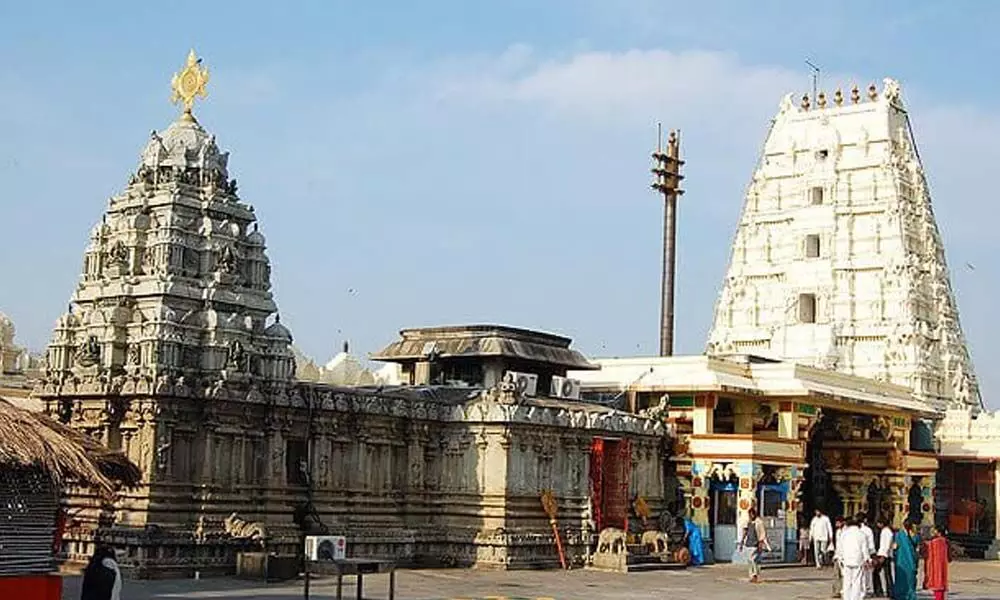Telangana, AP fail to protect temple literature

Telangana, AP fail to protect temple literature
- The State Endowments department has no record of religious literary assets
- Keeps mum on the misuse and appropriation of religious and spiritual literature offered to the presiding deities of various temples in Telangana and Andhra Pradesh
Hyderabad: The outdated ways of working under the Telangana State Charitable and Hindu Religious Institutions and Endowments Act (TSCHRIE Act), 1987 seem to be taking a toll on the asset health and sustainability of temples and Endowments.
It may be mentioned here that the TSCHRIE Act, 1987 has come into existence after renaming the erstwhile Andhra Pradesh State Charitable and Hindu Religious Institutions and Endowments Act (APCHRIE Act), 1987. The 1987 act was made before the bifurcation of the united Andhra Pradesh.
According to sources in the State Endowments Department, the department functioning under the Revenue Department considers that there are only two kinds of properties, movable and immovable. And the department has been facing a barrage of criticism for failing to protect both the movable and immovable properties even in united AP and there is no change in the situation even after the formation of separate Telangana.
On top of it, now it is facing a crisis in protecting the religious and spiritual literature of the temples.
Speaking to The Hans India, a senior official from the Endowments department said, "There is no registry or record relating to anything called intangible properties and intellectual properties or religious and spiritual literature either gifted by the devotees or owned by the presiding deity of a temple. The Endowments act does not speak anything about it," he added.
Take, for example, the Keethana "Paluke Bangaramayena" written by Kancharla Gopanna, popularly known as Ramadasu, was one among 300 keerthanas composed for the presiding deity of Bhadrachalam temple, offered by the devotee, poet and composer is being held in high esteem in the Carnatic music tradition.
Similarly, the Venkateswara Suprabhatam song at Tirumala temple and hundreds of more songs written for the Lord Venkateswara Swamy were offered to the deity by Tallapaka Annamacharya.
But, there is no record being maintained by any temple on such religious and spiritual literature written, offered and presented to the deities, said a temple official of Bhadrachalam temple.
In turn, the temple authorities or the Endowments department has no idea on how to act when the religious and spiritual literature, presented to the deity, is copied and adopted by others and using them for other than the intended purpose.
When asked Professor G B Reddy, an expert in the constitutional law, he pointed out, "Intellectual property rights cannot be claimed in the existing legal framework. However, moral rights of any misuse of the same could be invoked."
Expressing a similar view, Supreme Court Advocate J Sai Deepak said the words like Veda, Yoga are by and large are not prohibited. The only thing is that there is a higher standard than the user must satisfy and discharge.
Similarly, if Suprabhatam is taken by others and used in other religious contexts, then, "It is a direct case of appropriate of religious rights and infringement of religious rights, and also hurting religious sentiments. It belongs to a particular religion. It belongs to the literature of that religion. The Tirumala Tirupati Devasthanams can initiate action against whoever using Venkateswara Suprabhatam for praising any other deity who is not from the Hindu pantheon," he added.








